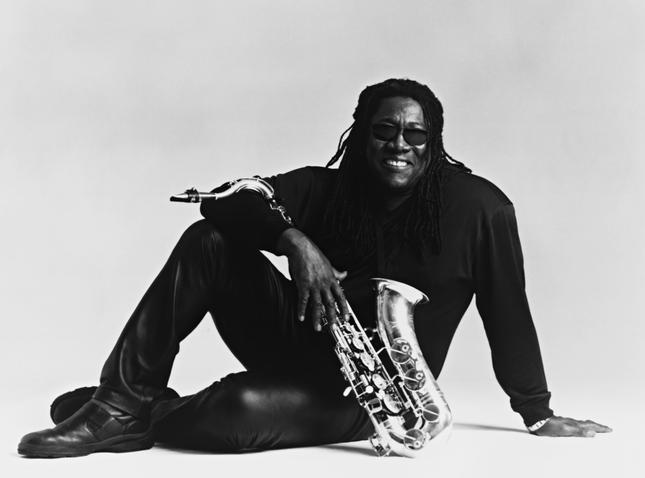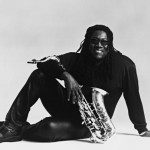When someone makes us laugh, when someone – as a member of the Preservation Hall Jazz Band said once – “sets your feet to tapping,” then the passing of that someone, famous, infamous, well-known or just a little known, is felt by strangers as a loss.
It’s a keen kind of feeling in celebrity-adoring, star-struck, time-tossed America where nostalgia does battle with a minute ago on a regular basis. With the passing of Clarence Clemons, the man responsible for Bruce Springsteen’s signature sound with his soaring sax, and Ryan Dunn, the insanely anarchic sidekick to Johnny Knoxville who together made up the spirit of “Jackass,” that dichotomy split apart.
Knoxville and a host of media types and buddies showed up at a memorial service for the 34-year-old Dunn who was killed (along with a buddy and passenger) when he lost control of his sports car on a road in West Goshen Township, Pennsylvania. Wikipedia says “he died after receiving injuries” in the crash, which doesn’t begin to imagine what could happen when a car blows up at over a hundred miles an hour. He was 34 years old.
Clemons died of complications from a stroke he had suffered. He was 69. There is a story that goes around—both the man known as The Boss and Clemons told it, apparently—that when they met, Clemons walked into a restaurant framed by storm and lightning. Musically and otherwise, it was deep friendship and love at first sight.
Clemons—who had a career separate from the inimitable E Street Band and Springsteen—provided something that most big and popular rock bands lacked, a signature character, a sax sound, a horn. You might have heard one every now and then—Sly and the Family Stone should have had one even if they didn’t since they had everything else and there was Bill Haley and the early tuxedo saxes of just-before Elvis rock and of course a guy named King Curtis who was with the Coasters and produced a record called “Yakety Sax.”
But the skinny kid named Bruce and the black guy from New Jersey—and former very large 6 foot 6 inch football player —made an odd match on the surface, but also a hopeful one because it was clear they had each other’s back. Springsteen acknowledged cheerfully that Clemons’ playing and his very presence gave the band’s music a deeper meaning, a kind of American potential story as rock and roll, high powered poem.
Dunn and the Jackass crew—they did other movies, had other ambitions—specialized in making film and video in which they jumped off bridges, got on skateboards, bycicles, golf carts and collided with things, to the sound of sometimes breaking bones. They were the gang that couldn’t fly straight, land safely, stand up move in a straight line and everything they did managed to produce some sort of physical pain. And everybody laughed: this is slapstick with real blood and scabs. Look at a collection of Jackass stunts and you will laugh and feel a little funny doing it.
I suspect there will be mourning for both, roses at the crash site, music and eloquent words and saxophone music played for keepsakes and memories. Clemons’ death is a loss like the last notes of a song. Dunn’s death is a tragedy that says too much about everybody. Born and died in the U.S.A.
Oh, there’s just one more thing.
That would be the death of Peter Falk, who had a rich and varied acting career on stage, screen and television, but who will always be “Columbo,” the stogie-chewing homicide detective who wore a rejected-by-Good-Will trench coat, and, with the murderer just about to let out a sigh of relief, would inevitably turn around and say:
“Oh, there’s just on more thing.”
That one more thing was the end for the killer, the man or woman who thought they’d committed the perfect crime, it was finis, stick a fork in them, the end of the end because:
There was just one more thing.
Falk’s Columbo became him—he won several Emmys for the role—and in the end, he became Columbo to anyone who had watched television the last three decades of the 20th century. It was an ingenious impersonation of a man who was a bag of ticks, that rumpled hair, the distracted manner, the endless curiosity about things that didn’t seem to manner, even the affection for some of the suspects, not to mention a Peugeot that barely made it out of the drive way.
There’s some irony in Falk’s enduring fame as a rumpled cop. He was always considered something of a serious actor and got a breakout Oscar nomination for playing a stone-cold killer in “Murder Inc.” about a much-feared mobster organization which specialized in killing.
There were also his great performances in the late director-actor John Cassavettes’ docu-style cinema verite in your-face dramas like “Husbands” and “Woman Under the Influence” opposite Gena Rowland, and numerous appearances in the live drama series that constituted television’s “golden age of drama.” He and Alan Arkin starred in “The In Laws,” a riotous comedy whose luster a remake starring Michael Douglas and Albert Brooks could not dim.
Mostly, this one-eyed son of Jewish New Yorkers, appealed not so much because he could play killers, but because he had a mensch quality about him that no matter what he showed on screen big and small, there was a generous soul inside.
One of his later films was “The Princess Bride,” in which Falk played a grandpa type reading to a reluctant boy the saga of a would-be prince, an avenging swordsman, a cruel tyrant and a princess in need of rescue. The boy finally was persuaded to listen to a story in which, also, there was always “just one more thing.”
Peter Falk was 83. He suffered from Alzheimer’s.
- Clarence Clemons





